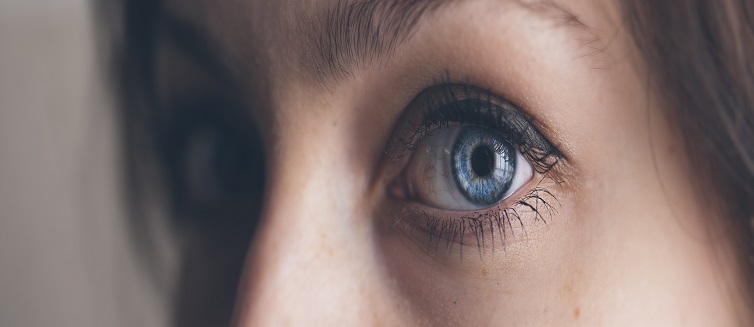Are your eyes the window to your soul? Perhaps. These two small organs can reveal much more about your overall health than you might expect.
Your eyes are rich with nerves, veins, and arteries, which can reflect the health of the rest of your body. That’s one of the reasons why getting your eyes examined regularly is so important: In addition to checking your vision, an eye exam can help identify potentially problematic changes to your overall health, like the conditions below:
Cataracts
Cloudy vision or glare may signal a cataract, a vision problem that’s common with age and can be corrected with surgery.
Diabetes
People with diabetes can develop microaneurysms and hemorrhages in the retina without vision changes in early diabetic retinopathy. Diabetic retinopathy is a condition that affects the eye’s blood vessels and is the most common cause of vision loss among people with diabetes.
High blood pressure
Never Miss a Beat!
Subscribe to Our HealthBeat Newsletter!
Thank you for subscribing!
You can now select the specific newsletters you'd like to receive.
You are already subscribed.
Subscribe to more newsletters in our email preference center.
Sorry, an error occurred. Please try again later.
Get Healthy Tips Sent to Your Phone!
A simple eye exam can help diagnose high blood pressure or hypertension or help evaluate blood pressure control in people known to have high blood pressure. This condition can cause distinctive kinks and twists in the tiny blood vessels of the retina.
High cholesterol
A gray ring around your eye’s cornea (arcus senilis) or yellowish deposits of cholesterol in the eyelids (xanthelasma) may be a sign of high cholesterol, and that you’re at risk for cardiovascular disease. Cardiovascular disease can increase your odds of having a heart attack or stroke.
HIV and AIDS
The HIV virus can cause retinopathy similar to diabetic retinopathy. Eye infections in AIDS patients are often serious and may lead to blindness. Eye doctors can sometimes detect these changes during eye exams. Early detection and treatment can help a patient maintain their vision.
Horner syndrome
Droopy eyelids, along with different-sized pupils, can be potential warning signs of a dangerous medical condition called Horner syndrome, which is linked to neck tumors and aneurysms and requires immediate medical attention.
Marfan syndrome
This genetic connective tissue disorder can be characterized by changes in the tissue that holds the lens of your eye in place. Marfan syndrome also typically causes extreme height, thinness, and long fingers, as well as an increased risk of aortic ruptures.
Myasthenia gravis
Droopy eyelids and double vision can be signs of myasthenia gravis, an autoimmune condition that also causes muscle weakness.
Skin cancer
If you develop a sore on or near your eyelid and have noticed that you’re losing eyelashes, you might have a type of eyelid carcinoma, or skin cancer. This type of skin cancer requires immediate medical attention: Some aggressive forms of eyelid cancer can lead to blindness or disfigurement if left untreated.
Thyroid disease
Eyes that protrude or bulge — a condition called exophthalmos — can be a common sign of Grave’s disease, also known as an overactive thyroid gland. This “bug-eyed” appearance can also cause red, inflamed eyes and vision changes, and is often accompanied by symptoms such as weight loss, rapid heartbeat, and anxiety or irritability.
Early Detection
Some of these changes to your eyes can be treated and possibly prevented if detected early. If you are experiencing any of these symptoms, contact your doctor. Make an appointment at UPMC today.
Learn more about your eye health. Visit the UPMC Vision Institute webpage for more.
Editor's Note: This article was originally published on , and was last reviewed on .
About UPMC Vision Institute
The UPMC Vision Institute is a national leader in the treatment of eye diseases and disorders. We seek to improve and restore your vision to help your quality of life, diagnosing and treating a wide range of conditions in both children and adults. Our treatments include both surgical and nonsurgical options. We also offer routine eye screenings and have full-scale optical shops. Find an eye expert close to you.
